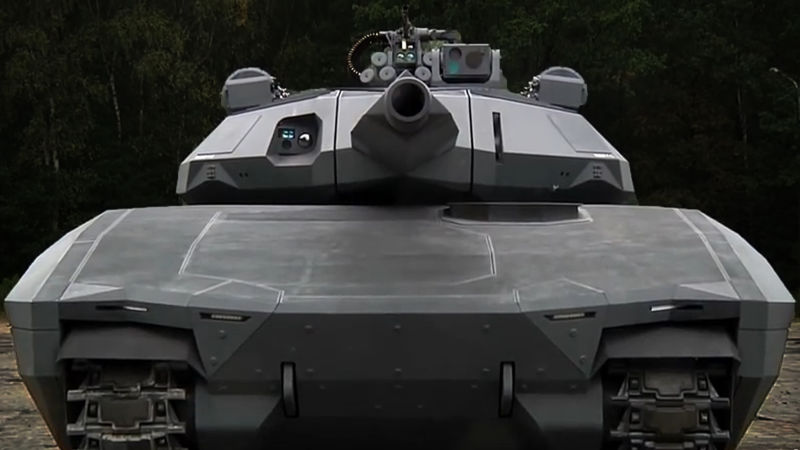Polish Stealth Tank: A Hidden Menace
January 18, 2017
In 1916, the first British tanks went into action on the battlefields of the first world war, crushing barbed wire and crossing trenches and extensive shell craters, lumbering, unstoppable armored behemoths. 23 years later, German panzers crossed the polish border, marking the beginning of a series of devastating blitzkrieg campaigns that were to leave all of continental Europe at the feet of Nazi Germany. And next year, production is expected to begin on a whole new concept of armored warfare, by Poland, the country who felt the effects of modern tanks and tactics first at the beginning of WWII: the PL-01 stealth tank.
While some attempts to make modern main battle tanks less visible to the enemy have been incorporated into present day armored vehicles, such as the British Challenger 2, the Polish tank is taking this to a new level. Designed by OBRUM, a part of Poland Defense Holdings, in concert with BAE Systems, located in the U.K., the PL-01 is made to be invisible to radar, infrared systems, and thermal imaging, as well as being physically harder to see, and utilizes the latest tank weaponry and armor. How does this all work? Let’s find out.
To start with, the stealth tank is of a smaller size than most other current day armored vehicles, with dimensions of about 22 feet long, 12 feet wide, and 9 feet tall, creating a much smaller silhouette that can be more easily hidden. In order to hide from radar and similar devices, the hull is specially shaped to form an angular figure that makes it harder for the radar waves to bounce back, and the surface is coated with a special radar/infrared- absorbent material. However, the most unique part of the PL-01 is its anti thermal imaging technology, comprised of hundreds of small hexagonal plates built into the tank’s armor. Each of these plates can be warmed or cooled to match the tank’s surroundings, and special processors eliminate the exhaust heat from the engine. This means the tank can’t be tracked or locked onto by heat seeking or infrared devices, such as those featured on enemy vehicles or missiles.
Technically classified as a light tank, the new Polish tank is still heavily armed and armored. The crew: a driver, gunner, and commander, are all situated in the lower part of the tank, the low, sleek, angular turret being automated, and the place of the loader taken by and autoloader capable of loading 6 rounds per minute. The armament is composed of a 120 mm high velocity main gun of unknown origin, together with two 7.62 mm machine guns, one mounted coaxially to the main weapon and the other on a remote mount on top of the turret. The armor is relatively weak, as the tank is meant to avoid being hit altogether, but it can withstand hits from light vehicle weaponry, up to a 30 mm armor piercing cannon. The tank is also capable of taking on optional modular armor to improve protection, and the vehicle is specially designed to withstand blasts from IEDs, RPGs, and other common threats on the modern battlefield. In order to allow the crew to operate the turret and the vehicle, advanced vision and targeting sensor systems have been installed all around the turret, providing 350 degree visibility in all conditions. In addition to this, the 1,000+ hp engine can accelerate the PL-01 up to a top speed of approximately 70 km/h, and can propel it over an impressive range or obstacles, ditches, inclines, etc.
So, what OBRUM and BAE systems are developing is a tank with a powerful armament and good mobility that can’t be detected, and can destroy enemies before they can even see what hit them. So, by the end of 2018, Poland will have one of the most technologically advanced armored fighting vehicles in the world, a phantom tank. The Polish tank force, once woefully outgunned and outnumbered by foreign invaders, can now claim to have one of the best and certainly most awesome tanks on the planet. Good thing we’re on their side.
Picture: www.jalopnik.com/is-polands-stealth-PL-01-the-tank-of-the-future-1554395391


